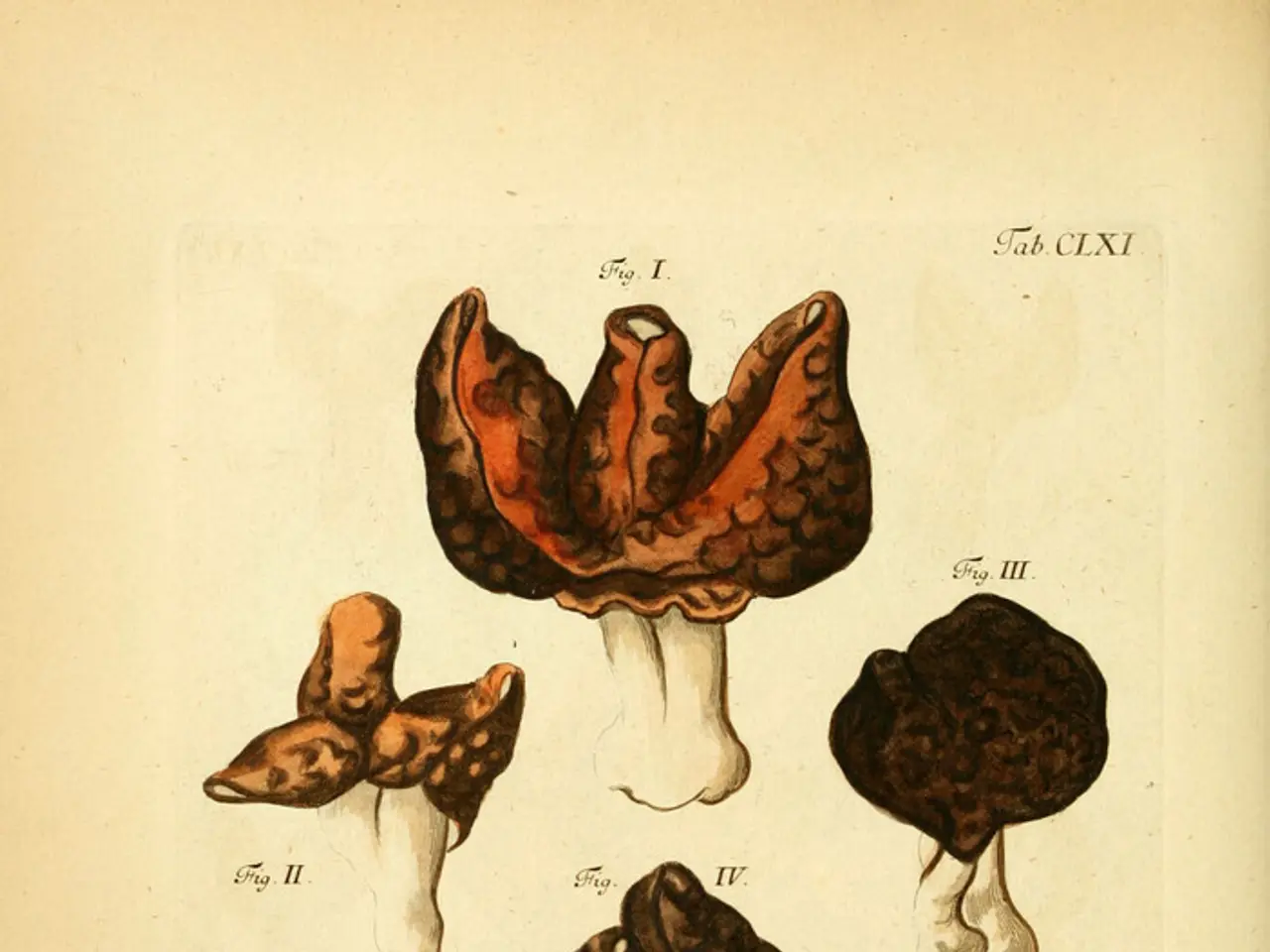Guide to Psychedelic Mushrooms, also known as 'Shrooms'
Psilocybin mushrooms, often referred to as "shrooms" or "magic mushrooms", are a fascinating subject that has captured the interest of many. These mushrooms contain hallucinogenic drugs called psilocin or psilocybin.
Identifying Psilocybin Mushrooms
Psilocybin mushrooms have a distinctive appearance. They have long and thin stems, a wide cap that is typically dark brown around the edges and lighter in the center, a dark brown underside with gills, and the edge of the cap can be wavy, flat, or pointed.
Effects of Psilocybin Mushrooms
The effects of psilocybin mushrooms can be profound and varied. They may include changes in perception of the world, feelings of unusual well-being or euphoria, visual or auditory hallucinations, spiritual or religious experiences, feelings of body weight change, and physical effects such as dizziness, light-headedness, nausea, vomiting, chills, increased pulse, numb tongue and mouth, and high blood pressure.
The duration of these effects can last for about 3 to 6 hours and can vary among individuals. Factors such as age, weight, amount used, food consumption, surroundings, expectations, previous drug use, personality, and setting can affect the effects.
Potential Benefits and Risks
Research has shown that psilocybin could be beneficial as a treatment for psychiatric and behavioral conditions, including depression, anxiety, obsessive-compulsive disorder, and substance abuse disorders. However, the risks associated with psilocybin mushroom use include vomiting, muscle weakness, diarrhea, seizures, a coma, anxiety, paranoia, panic, fear, intense hallucinations, unpleasant hallucinations, and flashbacks to previous experiences of taking mushrooms.
Legal Status
In the United States, psilocybin mushrooms are a Schedule I drug, making it illegal to have, sell, or give away these mushrooms for any reason. However, in some cities such as Ann Arbor, Michigan, Denver, Colorado, Oakland, California, and Seattle, Washington, possession of psilocybin mushrooms has been decriminalized.
Safety Measures
To reduce the risks of unpleasant effects and bad trips, it's crucial to be careful about the use of magic mushrooms. Control the amount consumed, ensure a safe and trusted environment, and remember that if you're not 100% sure the mushrooms you have are psilocybin, don't take them. It's not safe to attempt to identify psilocybin mushrooms on your own, as several types of poisonous mushrooms closely resemble psilocybin mushrooms, making identification difficult.
Ongoing Research
For those interested in ongoing clinical studies for psilocybin mushrooms, you can check out ClinicalTrials.gov. Always talk with your doctor before starting a clinical trial, especially if it would interfere with any of your ongoing treatments.
Organizations like the Multidisciplinary Association for Psychedelic Studies (MAPS), the Psilocybin Advocacy Coalition, and groups such as Decriminalize Nature are actively advocating for the decriminalization of psilocybin mushrooms in the United States.
In conclusion, psilocybin mushrooms offer a unique and potentially beneficial perspective on mental health treatment. However, their use should be approached with caution, careful consideration, and a thorough understanding of their potential risks.
Read also:
- Is it advisable to utilize your personal health insurance in a publicly-funded medical facility?
- Dietary strategies for IBS elimination: Aims and execution methods
- Benefits, suitable dosage, and safety considerations for utilizing pumpkin seed oil in treating an overactive bladder
- Harmful Medical Remedies: A Misguided Approach to Healing




